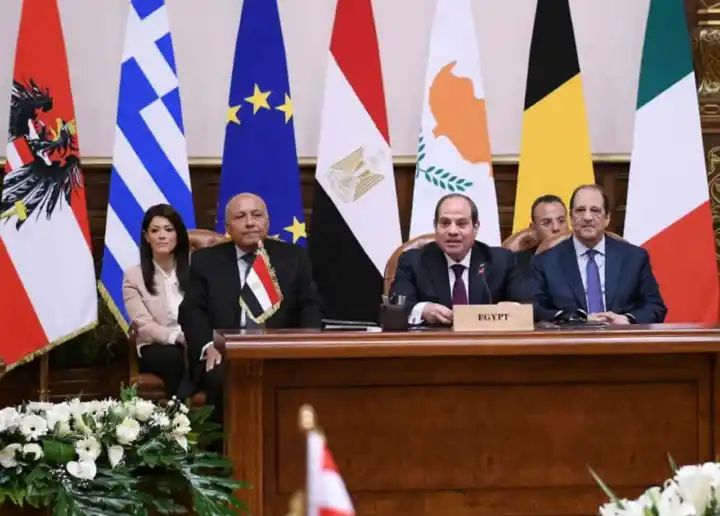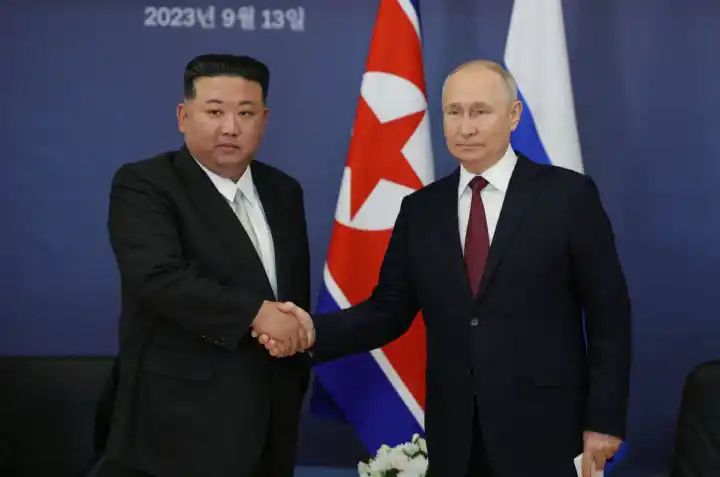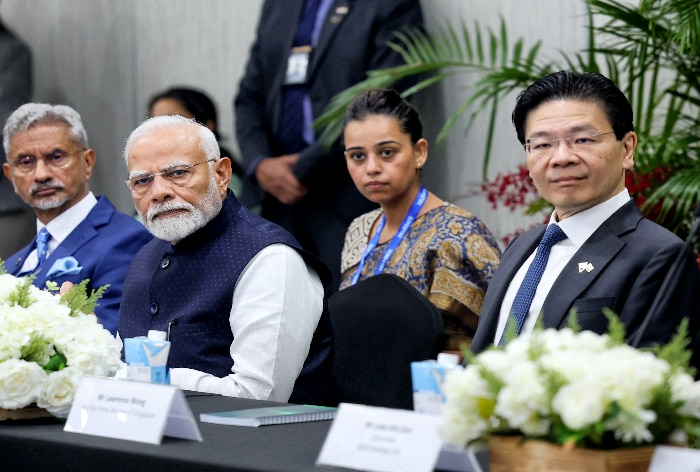EU unveils $8 bn aid package for Egypt amid looming concerns over migration

The European Union (EU) has announced an aid package of €7.4 billion ($8.06 billion) for Egypt, aiming to strengthen the country’s economy and enhance cooperation to address challenges surrounding migration.
This announcement, made amidst mounting concerns over migration pressures, comes as part of a broader strategy to fortify Egypt’s borders and stabilise the region.
According to reports, the agreement was signed in Cairo on Sunday afternoon in the presence of Egyptian President Abdel Fattah el-Sissi, President Ursula von der Leyen of the European Commission, and the leaders of Belgium, Italy, Austria, Cyprus, and Greece.
Prior to the signing ceremony that took place on Sunday afternoon, El-Sissi had separate meetings with von der Leyen and other European leaders.
The deal, although criticised by rights groups for Egypt’s human rights record, signifies a deepening of ties between the EU and Egypt, elevating their relationship to a strategic partnership.
Strengthening Ties: The aid package breakdown
The aid package, which includes both grants and loans spanning the next three years, is designed to provide crucial financial assistance to Egypt.
According to a report by Al Jazeera, a summary of the plan published by the EU outlines €5 billion ($5.45 billion) in concessional loans, €1.8 billion ($1.96 billion) in investments, and an additional €600 million ($654 million) in grants, with a portion specifically allocated for managing migration issues.
Strategic Partnership: EU-Egypt collaboration
The EU’s mission in Cairo highlighted the elevation of cooperation between the EU and Egypt to a “strategic and comprehensive partnership.”
This designation paves the way for expanded collaboration across various economic and non-economic sectors.
The Joint Declaration, signed as part of the agreement, highlights mutual goals such as promoting democracy, fundamental freedoms, human rights, and gender equality.
Additionally, both parties commit to intensifying efforts to address challenges surrounding migration and terrorism.
Addressing Migration Challenges: Border security and regional stability
A significant aspect of the aid package involves supporting Egypt in fortifying its borders, particularly with Libya, a key transit point for migrants fleeing poverty and conflict in Africa and West Asia.
With concerns rising over potential migration pressures stemming from conflicts in neighbouring countries, the EU’s assistance aims to enhance Egypt’s capacity to manage migration flows effectively.
Moreover, the deal acknowledges Egypt’s role in hosting Sudanese refugees, providing support for those who have fled ongoing conflicts in Sudan.
Human Rights Concerns: Criticism and calls for accountability
Despite the economic benefits outlined in the aid package, the deal has faced criticism from international rights groups over Egypt’s human rights record.
Organisations such as Amnesty International have urged European leaders to ensure that the Egyptian authorities adhere to clear benchmarks for human rights.
Concerns have been raised regarding restrictions on media and freedom of expression, as well as a crackdown on civil society within Egypt.
While the EU emphasises its commitment to promoting democracy and freedoms, the agreement’s focus on migration curbs has drawn scrutiny for potentially overlooking human rights abuses.





